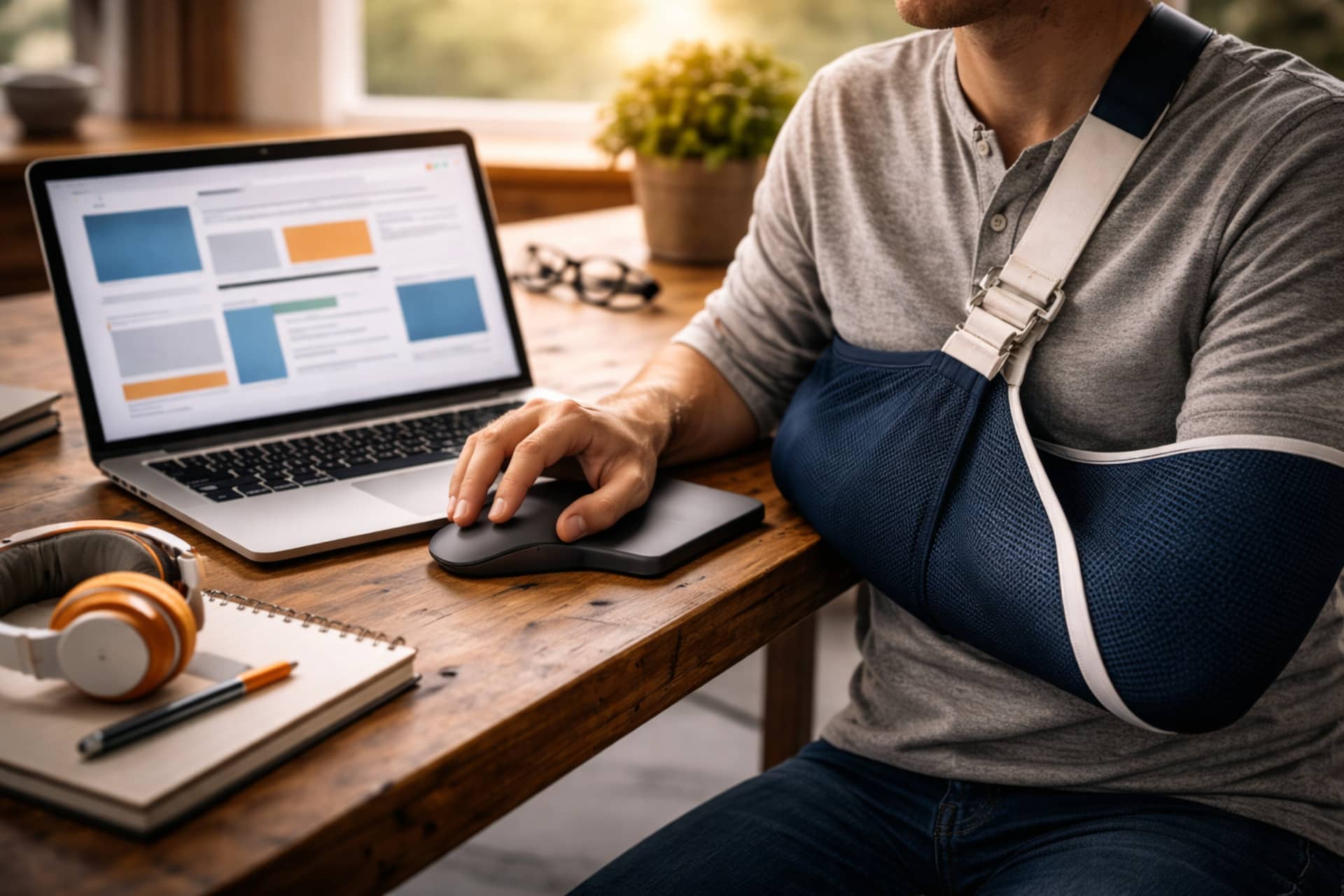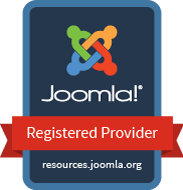
Accessible website
As the world becomes more reliant on the internet, website accessibility has become a critical issue to ensure that all users can access and use websites without any barriers or difficulties. People with disabilities, including those with visual, hearing, cognitive, and physical impairments, can face significant challenges when trying to use websites that are not designed to accommodate them. At db8, we understand the importance of website accessibility, and we offer a range of services to help website owners and developers optimize their websites to be more accessible.
Accessible websites are good for SEO
Making websites more accessible has practical benefits as well. One of these advantages is that accessible websites perform better in search engines such as Google. User experience is one of the factors that search engines consider when ranking websites. Accessible websites provide a better user experience, which can lead to increased engagement and longer visiting times. This, in turn, can lead to higher search engine rankings, which means that users can find accessible websites more easily. Businesses can improve their online visibility and reach a larger audience by optimizing their websites for accessibility, while also providing an inclusive and accessible experience for all users.
Accessibility services
Our website accessibility services include website audits to identify accessibility issues and provide recommendations to fix them. We also conduct thorough accessibility testing using assistive technologies such as screen readers to identify any issues that may be preventing users with disabilities from accessing the website. Our team of experts in website design and development can help create websites that are designed to be accessible from the outset, ensuring that all users can navigate and use the website without any obstacles.
Accessibility training
At db8, we provide training to website owners and developers to help them understand the importance of website accessibility and how to achieve it. We provide guidance on accessibility standards such as the Web Content Accessibility Guidelines (WCAG) and assistive technologies, and how to test websites for accessibility. With our help, website owners and developers can ensure that their websites comply with legal requirements, improve the user experience for all users, and reach a wider audience.
Support for accessibility optimization
Website accessibility is critical to ensure that all users can access and use websites without any barriers or difficulties. We offer a range of services to help website owners and developers optimize their websites to be more accessible, including website audits, accessibility testing, and website design and development. We also provide training and support to help website owners and developers understand the importance of website accessibility and how to achieve it. With our help, website owners and developers can ensure that their websites are accessible to all users, comply with legal requirements, and provide an improved user experience.

Why is accessibility important?
Accessible websites ensure that all users can use the site, including people with disabilities (such as visual, auditory, motor, or cognitive impairments). This makes the website usable for a wider audience.
In many countries, there are laws and guidelines, such as the WCAG (Web Content Accessibility Guidelines), that require websites to be accessible for people with disabilities. Non-compliance can lead to legal consequences.
Accessible websites improve the overall user experience by offering clearer navigation, better readability, and a structured layout. This benefits all users, not just those with disabilities.
Accessibility and SEO go hand in hand. A well-accessible website often has better structure and semantics, which helps search engines understand the content and rank the site higher in search results.
An accessible website contributes to a more inclusive society, where everyone has equal opportunities to access information and services.
How to make your website accessible?
- Correct HTML tags: Use the right HTML elements for the right tasks, like <header>, <nav>, <main>, and <footer>. This ensures that screen readers can better interpret the structure of the page. Also, use semantic headings (h1, h2, etc.) for better page organization.
- Properly label forms: Add clear labels to form elements and use <label> tags for input fields.
- Alternative image description: Provide images with a descriptive text using the ALT tag. This helps users with visual impairments understand what the image represents through screen readers.
- ALT tag exception: Not all images require an ALT tag. Decorative images, like background patterns or spacer images, do not add extra meaning to the content. Providing an empty ALT tag prevents unnecessary information for screen readers, improving the user experience.
- Keyboard navigation: Ensure that users can easily navigate with a keyboard. All interactive elements (like buttons and links) should be accessible via the Tab key.
- Skip-to-content links: Add an option that allows users to skip the main navigation and go directly to the page’s main content.
Ensure sufficient contrast between text and background. This makes text readable for users with visual impairments. Check this with contrast-checking software like the WCAG Color Contrast Checker.
- Use simple and clear language, especially for important information.
- Ensure that the content is structured with headings and paragraphs.
- Use clear and consistent call-to-actions, like buttons with text that describes the action (for example, "Submit" instead of "Click here").
Ensure your website works on different devices and screen sizes, so that users on mobile phones, tablets, and desktop computers have a good experience. Mobile-friendliness improves not only accessibility but also usability for everyone.
- Provide videos with subtitles and, where necessary, a transcript. This allows people with hearing impairments to follow the content.
- Add a descriptive audio track for important visual information that is not explained through spoken audio.
Where applicable, add ARIA attributes (Accessible Rich Internet Applications) to make interactive elements more accessible. This helps screen readers correctly interpret dynamic content (like pop-ups and modals).
Test if the website can be fully navigated using only a keyboard. All interactive elements should be accessible without a mouse, using keys like Tab, Enter, and Escape.
- Use accessibility testing tools like WAVE, Lighthouse, or axe to check for accessibility issues.
- Involve people with disabilities in testing the site to see if they can use it easily.
How we make your website accessible!
We build your new website with essential accessibility aspects in mind, such as semantic HTML, color contrast, and keyboard navigation. These measures ensure that the website is compatible with screen readers and other assistive technologies, making it easy for people with visual or motor impairments to navigate.
We test your existing website for accessibility. We check for issues like missing alternative texts for images or inaccessible buttons. After the test, we provide recommendations to fix these problems and improve the overall accessibility of the website.
We offer training and education on the importance of accessible websites. We teach you how to improve and manage your website with accessibility in mind. This includes using clear navigation structures, intuitive page layouts, and gathering user feedback to further enhance usability.
Government websites
Since September 2019, all new websites and apps of the Dutch government must be accessible.
Joomla 4
We usually use Joomla for our websites. And Joomla 4 is built with accessibility in mind.

